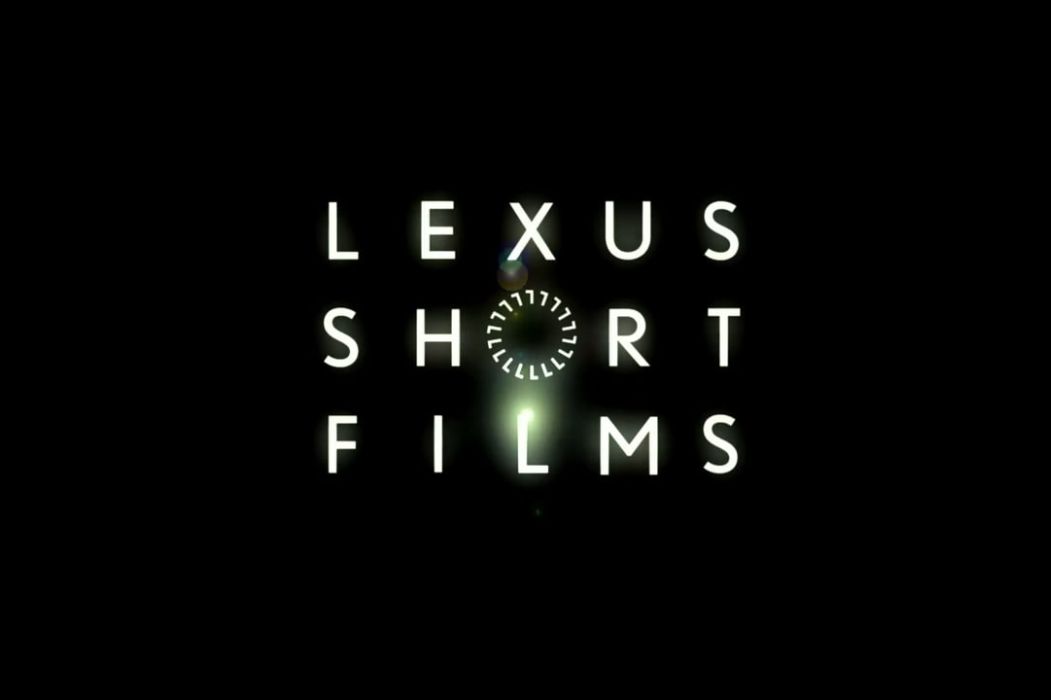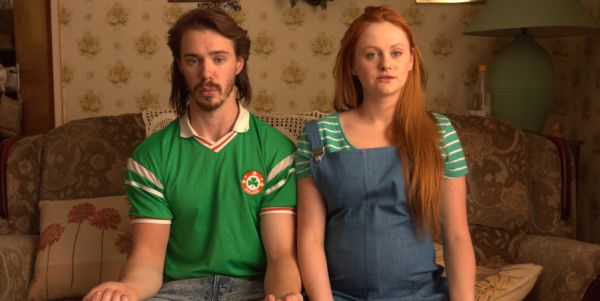Lexus Short Films Season 4: Now Accepting Submissions

Alex Arabian is a freelance film journalist and filmmaker. His…
For the fourth year in a row, The Weinstein Company is teaming up with Lexus for the Lexus Short Films competition, whose goal is “supporting and nurturing a new generation of emerging filmmakers.” Essentially, Lexus Short Films is filling an important void for up-and-coming filmmakers, providing them the opportunity to “realize their ambitions in the short-film genre,” which is a particularly difficult genre to secure funding for, given its tendency towards low ROIs. It is also an important genre for filmmakers to segue into feature-length filmmaking, taking their careers to the next level.
The four winners of Lexus Short Films each year have the opportunity to screen their short films at important international film festivals, giving them an unprecedented opportunity to secure distribution and show their cinematic voices on a global scale. Last year’s Season 3’s winners produced an eclectic array of shorts from filmmakers Kev Cahill, Alexis Michalik, Damian Walshe-Howling, and Jeannie Donohoe. Below are brief reviews of the four shorts that last year’s winners created.
The Nation Holds Its Breath – Kev Cahill
Kev Cahill’s short film, The Nation Holds Its Breath, is a tense, emotional, clever, and rewarding roller-coaster. Winner for Best Direction Award at the LA Indie Film Festival, Cahill’s film follows a pregnant couple, the wife of which goes into labor during the most important football match in Ireland’s history on June 25, 1990. Cahill’s mastery of playing with the audience’s anticipation, paralleling that of the match with unanticipated difficulties during the wife’s child labor at the hospital, provides a surprisingly profound payoff at the end.
Cahill deftly balances comedy, through the disconcerting lack of care the main nurses exhibit and a disinterest by every minor character, glued to the hospitals one, tiny television, with emotional resonance. It’s a thoughtful and engaging allegory for the shaky and, at times, horrifying transition into both adulthood and parenthood.
The only thing lacking in this short is a consistency in the score. Stephen McKeon and John McPhillips compose a piece that is jolting, and not it the moments when it should be. However, the fine performances overshadow any tonal inconsistencies that the score provides.

Costume designer, Joan O’Clery and production designer, Paki Smith, and cinematographer, Oliver Loncraine, who creates a color palatte that resembles over-exposed film, accentuating the setting, do a fantastic job of bringing this period piece to life.
Friday Night – Alexis Michalik
Alexis Michalik’s short, Friday Night, won the Audience Award at the Napa Valley Film Festival last year. Each short was chosen for its prominent, succinct, and singular vision. Each film that wins highlights the strengths in both storytelling and assuredness behind the camera of the specific filmmaker. For Michalik, she proves herself to be a master-in-training of suspense and primal fear. Claire (Adria Tennor) is an American foreigner visiting her daughter in France, who is studying a semester abroad.
On this fateful night, a terrorist shooting takes place in downtown, spawning Claire to embark upon an odyssey to secure the safety of her daughter, whose location is unknown. Between calling her detached husband across the world and desperately asking civilians for help on the streets, the unsettling becomes utterly unnerving.
Friday Night is by all means a horror film; it is genuinely terrifying to the core because of its realism. Terrorist attacks happen everyday in our world. It’s one thing to see them from afar on a TV screen, it’s another to be immersed in a world that takes the audience to ground zero of such a dark event.
The hastily climbing sense of dread strikes a visceral chord with the viewer. Tennor’s tour-de-force performance, Michalik’s intentionally apprehensive camerawork, and Romain Trouillet’s pitch-perfect score combine for some of the most intense onscreen 16 minutes in recent memory.
MESSiAH – Damian Walshe-Howling
Given the sharp influx in quality Australian films over the past 10 years, it’s not surprising that one of the many emerging talents from down under was discovered in last years Lexus Short Films competition. This time, writer and director Damian Walshe-Howling’s voice emerges from the Australian indie scene to a larger audience, screening MESSiAH last year at the Raindance, Newport Beach Film Festival circuit to wide praise.
It’s amazing how much of the unknown human beings willfully ignore, even as it hits them square in the head, or, in MESSiAH’s case, the opposite. An arguing couple, a rational French woman and a superstitious Irishman, embark on a road trip across the Australian outback. Along the way, they seemingly run over a mysterious and roguish, indigenous Australian, played brilliantly by acclaimed character actor, David Gulpilil, at 110 KPH.
When the “victim” appears unarmed and still standing, the Irishman deems him a “Cleverman,” a term non-indigenous Australians give to certain indigenous ones, or, a shaman. He insists they’ve witnessed a miracle to his skeptical wife, proclaiming him god and the messiah himself. She bails, he blindly follows. What ensues is an absurdist comedy of stereotypes and misconceptions.

Beneath the cheeky tone along the Irishman and the “Cleverman’s” quest across the unrelenting wilderness of Australia, Walshe-Howling excavates a subtext of the subconscious self-importance in the modern, middle-class human being that holds our world back from progressing. Expect sublime, celestial imagery that only the Australian wild can provide, shot delicately by Walshe-Howling. MESSiAH is The Darjeeling Limited meets Vacation, with a touch of Terrence Mallick.
Game – Jeannie Donohoe
Game, written and directed by Los Angeles native, Jeannie Donohoe, won the Best Short Film at the Julien Dubuque Film Festival last year. It is, perhaps, the most surprising tear-jerker of the year. Its themes and social commentary are immediate. The obvious star allure in this picture is former NBA basketball player and actor, Rick Fox, who gives a nuanced performance as “Coach.” The unexpected, star-making performance goes to Nicole Williams, who plays the main character, AJ.
Williams astounds as a freshman trying out for the men’s high school basketball team over the course of two days, unbeknownst to the players and coaches. Even before everyone finds out she’s female, she experiences damaging bullying by the older players because of her extraordinary talent on the basketball court. In competitive sports, there is an inherent separation of gender, which provides for one of the most difficult glass ceilings left to break.
Game’s message is timely; the segregation of gender in professional sports has created an inherent bias towards men’s professional teams, given the context of a global, patriarchal society. It’s obvious that women can play at the same level of intensity and skill as men, but old norms and societal confines die hard. Take American football, for example, which is undoubtedly the dumbest, most damaging “sport” today; players are retiring in their 20s because they don’t want brain damage, yet, as long as money is a motivation, the sport will endure.
Bullying, sexism, egomaniacs, insecurities outwardly inflicted upon others; we’ve all experienced this, and now witness it on a daily basis with the president of the United States. Game is an intimate look at pushing boundaries and enduring adversity.
Lexus Short Films: Calling All Submissions
The application window for submitting the short film you have written and directed is coming to a close on August 24, 2017. This year’s theme for the short film submissions is “transformation – a theme born from the Lexus brand’s belief that amazing things happen when you transform the ordinary into extraordinary.” And, really, that is what captures the essence of short film short film: making the maximum use out of minimal means.
The four winning filmmakers will receive the opportunity to direct a Lexus Short Film based on their script, produced by The Weinstein Company and will receive $40,000 towards that end. Their films get promotional theatrical screenings and will be submitted to top film festivals.
Allowing a filmmaker to focus more steadily on his or her vision is exactly what Lexus and The Weinstein Company have consistently done: eliminating obstacles that may obstruct rising filmmakers’ artistic visions, whether those obstacles be financial, creative, or motivational. Given the consistently successful history of quality Lexus Short Films, I look forward to the shorts that this year’s winners produce!
Are you a fan of the short film genre? Do you have a favorite? Name some directors who got their first big break with a short film!
Does content like this matter to you?
Become a Member and support film journalism. Unlock access to all of Film Inquiry`s great articles. Join a community of like-minded readers who are passionate about cinema - get access to our private members Network, give back to independent filmmakers, and more.
Alex Arabian is a freelance film journalist and filmmaker. His work has been featured in the San Francisco Examiner, The Playlist, Awards Circuit, and Pop Matters. His favorite film is Edward Scissorhands. Check out more of his work on makingacinephile.com!













